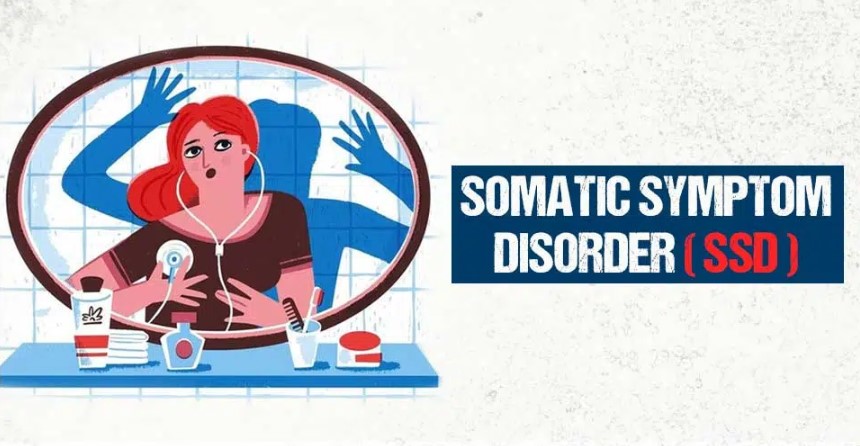Premature Ejaculation is a sexual dysfunction where a man ejaculates sooner than they want to during sexual intercourse. It can be caused by various factors and not always related to any underlying disease.
What Is Premature Ejaculation (PE)?
Typically observed in men, it is a form of sexual dysfunction that leads to early orgasm and ejaculation of semen during sexual intercourse. Someone suffering from this condition may ejaculate much sooner than they or their partner may want to. It can occur both before or immediately after penetration during sexual intercourse.
It is believed that about 20 to 30% of men [mfn] Gillman, N., & Gillman, M. (2019). Premature Ejaculation: Aetiology and Treatment Strategies. Medical sciences (Basel, Switzerland), 7(11), 102. https://doi.org/10.3390/medsci7110102 [/mfn] have experienced this dysfunction at least once in their lifetime, regardless of their ethnicity or age. It is often caused by a range of biological and psychological reasons such as unhealthy hormone levels, abnormal brain chemicals levels, infection, inflammation, stress, anxiety, depression etc.
It is also known as rapid ejaculation or early ejaculation. According to a 2014 study [mfn] Gajjala, S. R., & Khalidi, A. (2014). Premature ejaculation: A review. Indian journal of sexually transmitted diseases and AIDS, 35(2), 92–95. https://doi.org/10.4103/0253-7184.142391 [/mfn], PE is “a common male sexual disorder” and is defined as “ejaculation occurring, without control, on or shortly after penetration and before the person wishes for it, causing significant distress or interpersonal difficulty.” It is not a cause for concern if this condition does not occur frequently.
However, if it tends to happen every time the individual has sexual intercourse, it is essential to seek medical attention. However, the condition is treatable and can be managed effectively with therapy, medication and certain sexual techniques. It is important to address such concerns with the partner involved in order to maintain a healthy relationship with them.
Understanding Premature Ejaculation
Ejaculation is the release of semen from the penis during an orgasm. In the case of premature ejaculation, the man tends to ejaculate sooner than needed with minimal sexual stimulation. It can occur before penetration or shortly after penetration. The Normal Intravaginal Ejaculatory Latency Time (IELT) varies between 30 seconds and 44 minutes. Men with an Intravaginal Ejaculatory Latency Time (IELT) of less than a minute have “definite” PE while men having an IELT between 1 and 1.5 minutes have “probable” PE.
There is no uniform cut off scale for defining premature but a team of experts endorsed a definition of around one minute [mfn] Serefoglu, E. C., McMahon, C. G., Waldinger, M. D., Althof, S. E., Shindel, A., Adaikan, G., Becher, E. F., Dean, J., Giuliano, F., Hellstrom, W. J., Giraldi, A., Glina, S., Incrocci, L., Jannini, E., McCabe, M., Parish, S., Rowland, D., Segraves, R. T., Sharlip, I., & Torres, L. O. (2014). An evidence-based unified definition of lifelong and acquired premature ejaculation: report of the second international society for sexual medicine ad hoc committee for the definition of premature ejaculation. Sexual medicine, 2(2), 41–59. https://doi.org/10.1002/sm2.27 [/mfn] after penetration. However, the International Classification of Diseases (ICD 10) applies a cut off of 15 seconds from the beginning of sexual intercourse. When premature ejaculation occurs frequently over a period of six months, it becomes a medical problem that requires immediate medical attention.
Men who experience this condition tend to get frustrated or even depressed due to their lack of performance in bed. It is possible for men to regain ejaculatory control within a few days of initiating treatment and leading a healthy sexual life. Men who experience this condition also tend to suffer psychological distress.
A 2003 study [mfn] Byers, E. S., & Grenier, G. (2003). Premature or rapid ejaculation: heterosexual couples’ perceptions of men’s ejaculatory behavior. Archives of sexual behavior, 32(3), 261–270. https://doi.org/10.1023/a:1023417718557 [/mfn] of 152 men and their partners suggest that the partner tends to be less worried about the condition than the man who experiences it. Studies [mfn] Reading, A. E., & Wiest, W. M. (1984). An analysis of self-reported sexual behavior in a sample of normal males. Archives of sexual behavior, 13(1), 69–83. https://doi.org/10.1007/BF01542979 [/mfn] found that this condition has been estimated to occur in 4% to 39% of men in the general community. In a study [mfn] McMahon C. G. (2007). Premature ejaculation. Indian journal of urology : IJU : journal of the Urological Society of India, 23(2), 97–108. https://doi.org/10.4103/0970-1591.32056 [/mfn] conducted with 1326 men, it was found that 736 men (74.4%) had lifelong PE and 253 men (25.6%) had acquired PE.
Categories Of Premature Ejaculation
This condition is divided into two categories. They are as follows:
1. Lifelong (Primary) PE
This means that the man has experienced premature ejaculation always or almost always during or after their first sexual experience.
2. Acquired (Secondary) PE
This condition means that the man has experienced long-lasting ejaculation but they tend to have developed PE over time.
Symptoms Of Premature Ejaculation
This condition may occur during intercourse or during masturbation. The following are the primary signs and symptoms of premature ejaculation:
- Being unable to delay the ejaculation for more than one minute after penetration
- They ejaculate within one minute of penetration
- Feeling frustrated for not being able to perform
The secondary symptoms of this condition are as follows:
- Decreased confidence while being in a relationship
- Interpersonal difficulties
- Mental distress
- Anxiety
- Embarrassment
- Depression
Read More About Embarrassment Here
Causes Of Premature Ejaculation
The exact causes of this condition are still unknown. Experts believe that there are psychological or emotional factors involved in developing this condition. But there may be other factors responsible for this condition, such as –
1. Psychological Factors
The psychological factors [mfn] Althof S. (2006). The psychology of premature ejaculation: therapies and consequences. The journal of sexual medicine, 3 Suppl 4, 324–331. https://doi.org/10.1111/j.1743-6109.2006.00308.x [/mfn] for this condition are as follows:
- Early experiences
- Sexual abuse
- Poor body image
- Depression
- Being worried about premature ejaculation
- Feeling guilty that increases the tendency to rush through sexual encounters
- Anxiety
Read More About Body Image Here
2. Biological Factors
The biological factors for this disorder include:
- Abnormal hormonal levels
- Abnormal levels of brain chemicals called neurotransmitters
- Inflammation or infection of the prostate or urethra
- Inherited traits
3. Erectile Dysfunction
Men who find it difficult to obtain or maintain an erection during sexual intercourse [mfn] Tsai, W. K., Chiang, P. K., Lu, C. C., & Jiann, B. P. (2019). The Comorbidity Between Premature Ejaculation and Erectile Dysfunction-A Cross-Sectional Internet Survey. Sexual medicine, 7(4), 451–458. https://doi.org/10.1016/j.esxm.2019.06.014 [/mfn] tend to form a pattern of rushing to ejaculate which, in consequence, may become a cause of this condition.
4. Relationship Issues
In case a man has had a satisfying sexual relationship with other partners where they experienced PE sometimes or not at all, it’s possible that the interpersonal issues in the current relationship may be a cause of this condition.
Diagnosis For Premature Ejaculation
It is of utmost importance to seek medical attention in case you experience the following:
- When the condition has been occurring or occurred enough times to cause issues in the relationship
- When it makes them feel conscious
- When it keeps them from pursuing intimate relationships
The patient may seek a primary care physician or a urologist. A urologist can ensure if there is an infection or inflammation in the urinary system and male sexual function. The doctor may ask you a few questions to devise a treatment plan. They can be as follows:
- How long have you been sexually active?
- When did this condition become a concern?
- How often does this condition occur?
- How long does it take for you to ejaculate during sexual intercourse and when you masturbate?
- Do you use drugs or medications that may affect your sexual performance?
- Have you had any sexual intercourses that involved normal ejaculation? If that’s the case, what was different about those experiences and the times when you experienced PE?
It may be wise to consult a mental health professional who specializes in sexual dysfunction to ensure if there are any underlying mental health conditions.
What To Ask Your Doctor
While seeking medical attention, it is important to be prepared. Here are some questions that you may ask your doctor to have a basic understanding of your condition:
- What could be causing my premature ejaculation?
- What are the tests necessary to diagnose this condition?
- What treatment options do you recommend?
- How soon can I expect signs of improvement?
- Am I at risk of this condition recurring?
- Is there a generic alternative for the medications prescribed?
- What websites do you recommend visiting?
Treatment For Premature Ejaculation
With some changes in the sexual routine, it is possible to treat this condition. The doctor may recommend the patient to masturbate an hour before the sexual intercourse since this can delay the ejaculation process.
1. Start And Stop Method And Squeeze Method
There are two strategies that the man and his partner can employ. This method is called the start and stop method and the squeeze method. With the start and stop phase, the partner stimulates the penis until they are close to the point of ejaculation. Next, the partner should stop and let the man take control of his instincts again. The partner will continue this process two more times. Then in the fourth attempt, he can ejaculate. Experts recommend trying this method at least three times a week to gain control over ejaculation during sexual activity.
With the squeeze method [mfn] InformedHealth.org [Internet]. Cologne, Germany: Institute for Quality and Efficiency in Health Care (IQWiG); 2006-. Premature ejaculation: What can I do on my own? 2019 Sep 12. Available from: https://www.ncbi.nlm.nih.gov/books/NBK547551/ [/mfn], the partner stimulates the penis in order to reach its climax and then firmly squeezes it until the erection starts to weaken. This method helps to better realize the sensation of climax in order to develop control and delay ejaculation.
This method may take several weeks to prove effective. However, there is no guarantee that this method alone will resolve the problem.
2. Pelvic Floor Exercises
Exercise may help to ease the symptoms. Sometimes exercising the pelvic floor [mfn] Pastore, A. L., Palleschi, G., Fuschi, A., Maggioni, C., Rago, R., Zucchi, A., Costantini, E., & Carbone, A. (2014). Pelvic floor muscle rehabilitation for patients with lifelong premature ejaculation: a novel therapeutic approach. Therapeutic advances in urology, 6(3), 83–88. https://doi.org/10.1177/1756287214523329 [/mfn] may prove beneficial in resolving the issue. In order to locate the pelvic floor muscles, use the muscles that are associated to stop urination midstream or the muscles that can be used to stop from passing gas. Once it is recognized where those muscles are present they can practice exercises known as Kegel Maneuvers [mfn] Huang YC, Chang KV. Kegel Exercises. [Updated 2021 May 9]. In: StatPearls [Internet]. Treasure Island (FL): StatPearls Publishing; 2022 Jan-. Available from: https://www.ncbi.nlm.nih.gov/books/NBK555898/ [/mfn]. It can be done by sitting, lying down or standing.
Kegel Maneuvers requires the patient to:
- Tighten the pelvic floor muscles and count to three
- Relax the muscles for a count of three
- Do this exercise several times during the day
- Work its way up to three sets of 10 repetitions a day
It is important to keep in mind that while doing these exercises, it is advisable to not use abdominal or buttock muscles instead of the pelvic floor muscles. It may take weeks or months to make a difference in controlling your early ejaculation.
3. Decreased Sensitivity
Sometimes decreasing the sensitivity of the penis may help in controlling premature ejaculation. Using a condom during sexual intercourse may decrease the sensitivity around the penis and can help to maintain the erection longer without ejaculating. Certain condoms are even marketed as “climax control”. These condoms contain numbing medications such as benzocaine to dull the nerve responses of the penis in a controlled manner.
4. Medications
The following medications may be prescribed by a doctor to manage the symptoms of premature ejaculation –
A. Erectile Dysfunction Medications
In the case of erectile dysfunction where it is a contributing cause of this disorder, certain medications such as tadalafil (Cialis) or Sildenafil (Viagra) may help to maintain erection thus delaying the process of premature ejaculation. These medications take an hour to begin working and getting the right dose may also take some trial and error. So it is important to consult your health care professional to ascertain the appropriate amount.
B. Topical anesthetics
Applying numbing medications such as benzocaine, lidocaine or prilocaine 15 minutes prior to the intercourse activity may also prove beneficial. However, it is important to consult with the doctor before taking any sort of medication. A lidocaine-prilocaine cream is available by prescription. Lidocaine sprays are available over the counter.
C. Oral medications
Sometimes medications can help to delay ejaculation. However, these drugs are not approved by the FDA to treat this condition. These medications are as follows:
- Antidepressants: Delayed orgasm is a side effect of certain antidepressants. For this reason, certain SSRIs such as escitalopram (Lexapro), sertraline (Zoloft), paroxetine (Paxil), or fluoxetine (Prozac) are used to delay ejaculation. Out of the approved ones in the United States, paroxetine [mfn] Shrestha P, Fariba KA, Abdijadid S. Paroxetine. [Updated 2021 Dec 9]. In: StatPearls [Internet]. Treasure Island (FL): StatPearls Publishing; 2022 Jan-. Available from: https://www.ncbi.nlm.nih.gov/books/NBK526022/ [/mfn] has proven highly effective.
- Analgesics: Tramadol [mfn] Dhesi M, Maldonado KA, Maani CV. Tramadol. [Updated 2021 May 25]. In: StatPearls [Internet]. Treasure Island (FL): StatPearls Publishing; 2022 Jan-. Available from: https://www.ncbi.nlm.nih.gov/books/NBK537060/ [/mfn] is a certain medication that is used to treat pain. Its common side effect is delayed ejaculation. The doctor may prescribe this medication in case the antidepressants don’t work.
- Dapoxetine: This SSRI is used to treat PE in many countries. This is a rapid action and licensed drug [mfn] McMahon C. G. (2012). Dapoxetine: a new option in the medical management of premature ejaculation. Therapeutic advances in urology, 4(5), 233–251. https://doi.org/10.1177/1756287212453866 [/mfn] to treat patients suffering from this condition. However, there are some criteria that must be met before prescribing this medication such as poor control over ejaculation and sex lasting for 2 minutes before ejaculation occurs.
Read More About Antidepressants Here
5. Counseling And Therapy
Counseling involves speaking to a therapist and addressing personal concerns to them in order to work together to devise a treatment plan. This can involve talking to the doctor about your relationship whether sexual or personal in order to detect if there are any underlying mental health conditions that are triggering this disorder. With a combination of counseling and medications, it may be beneficial to improve your condition and address your underlying concerns in an effective way.
Sometimes premature ejaculation may upset the partner. In this case, it is important to talk and get couples counseling or sex therapy to ensure that your relationship with your significant other isn’t hurt in the process.
Read More About Therapy Here
6. Surgery
There are two different surgical procedures available to permanently treat premature ejaculation. They are selective dorsal neurectomy [mfn] Zhang, G. X., Yu, L. P., Bai, W. J., & Wang, X. F. (2012). Selective resection of dorsal nerves of penis for premature ejaculation. International journal of andrology, 35(6), 873–879. https://doi.org/10.1111/j.1365-2605.2012.01296.x [/mfn] (SDN) and glans penis augmentation [mfn] Kim, J., Kwak, T., Jeon, B. et al. Effects of glans penis augmentation using hyaluronic acid gel for premature ejaculation. Int J Impot Res 16, 547–551 (2004). https://doi.org/10.1038/sj.ijir.3901226 [/mfn] using a hyaluronan gel. About 72.9% [mfn] Yang, D. Y., Ko, K., Lee, W. K., Park, H. J., Lee, S. W., Moon, K. H., Kim, S. W., Kim, S. W., Cho, K. S., Moon, d., Min, K., Yang, S. K., Son, H., & Park, K. (2013). Urologist’s Practice Patterns Including Surgical Treatment in the Management of Premature Ejaculation: A Korean Nationwide Survey. The world journal of men’s health, 31(3), 226–231. https://doi.org/10.5534/wjmh.2013.31.3.226 [/mfn] of Korean urologists consider SDN as a safe treatment option. Studies [mfn] Anaissie, J., Yafi, F. A., & Hellstrom, W. J. (2016). Surgery is not indicated for the treatment of premature ejaculation. Translational andrology and urology, 5(4), 607–612. https://doi.org/10.21037/tau.2016.03.10 [/mfn] have found that both surgical options are relatively safe and effective but due to the lack of large, randomized controlled trials, the International Society for Sexual Medicine has been unable to endorse these options as treatment.
Prevention Of Premature Ejaculation
There are no preventive measures available for premature ejaculation. However, here are somethings that you can follow:
- Having a healthy attitude towards sex is important. In case you have feelings of guilt, anxiety, or frustration about your sex life, consider seeking help from a mental health expert or a sex therapist.
- It is important to keep in mind that anyone can experience this condition. In case you experience this try not to blame yourself or entertain feelings of inadequacy. Instead, talk to your partner about your condition in order to avoid misunderstandings and miscommunication.
Is Recovery Possible?
Some men experience this condition for a short period of time and the symptoms tend to improve on their own. It is possible to recover from this condition with medication, therapy, and home remedies that you can try with your partner.
It is important to communicate with your partner when you are experiencing any symptoms. For the partner, it is of paramount importance to be supportive and understanding of each other’s needs even when there is a strain in your relationship. It is essential to understand that this condition is usually resolved with treatment.
Premature Ejaculation At A Glance
- Premature Ejaculation (PE) is a sexual dysfunction where a man ejaculates sooner than he wants to during sexual intercourse.
- It is also known as rapid ejaculation or early ejaculation.
- It is of two types: Lifelong (Primary) PE and Acquired (Secondary) PE.
- It is caused by performance anxiety, mental distress, hormonal imbalances, interpersonal difficulties, etc.
- If untreated, it causes difficulties in one’s sex life and relationships.
- PE also negatively impacts one’s self-esteem, mental health, etc.
- PE can easily be treated through therapy, medication, pelvic floor exercises, masturbation, etc.










Leave a Reply